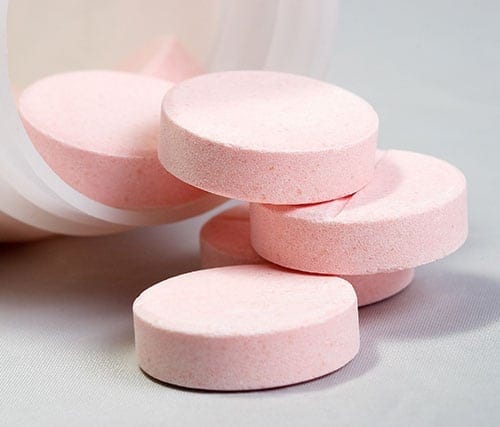There are many pearls, tricks, statements and facts sprinkled in reliable diabetes journals, sites and magazines that may be helpful to you. I often share this information with my patients during diabetes management sessions since I am constantly reading. I hope some of these tidbits can increase your knowledge of diabetes as well as getting your blood sugars under control.
The Genetic Factor
There are definite genetic factors that are linked to developing diabetes. For example, you are 10-20 times more at risk for developing type 1 diabetes than the general population if you have a parent with type 1 diabetes. If you have one parent with type 2 diabetes your risk goes up to 40% and if you have two parents with type 2 diabetes your risk for type 2 goes up to 70%. Obviously, you can’t change your genes but you can do a lot to lower your chances of developing diabetes. Work on your lifestyle and get your blood pressure, weight, LDL’s, triglycerides and blood sugars down. Pre-diabetes is fasting blood sugar of 100-125 mg/dl. With proper changes, that number can return to normal which is 60-99mg/dl. When diabetes develops it is controlled, not reversed, except in cases of gastric bypass. Long term studies show when the weight returns after the gastric procedure that the diabetes returns.
Winter is Coming – So is Dry and Itchy Skin
Winter is coming and dry, itchy skin is a common complaint of people with diabetes. The best recommended ingredient in over–the–counter creams and lotions is urea. Urea is a natural compound already found in the skin’s outer layer. After being reviewed in a group of studies, “it works by smoothing and soothing since it helps cells bind to water”. Try to use it after a bath or shower when the skin is still damp or moist. Putting socks on your feet at night after using the lotion with urea offers even more benefits.
Calluses and Foot Care
People with diabetes frequently have thick, rough calluses on their feet due to super dry skin. This can lead to painful walking and even problems with balance. Using files and blades on your own feet is never considered safe since it could lead to severe infections. Podiatrists or foot doctors should always be consulted for this condition. Podiatrists can now treat calluses with a lactic acid peel. “These chemical peels can remove the toughest calluses without creating open areas”, according to Dr. Oliver Zong, a New York City podiatrist. You should refer to a podiatrist for ingrown toe nails as well. Anything that requires cutting should be shown to a foot doctor and not self-treated.
Supplements – Good or Bad?

Less Stress = Less Blood Sugars
Stress reduction techniques can actually have an impact on your blood sugar readings. Start simply by including 10 minutes of deep breathing or meditation in the morning. Plan your quiet time as a daily treat. Consider a monthly massage or a walk in the woods or garden for stress relief. Reducing stress can lower blood pressure, cortisol levels, improve your mood and get your blood sugars down. Alert your physician that you are using stress reducing techniques as they may need to reduce your diabetes medications.
Diabetes Smart Phone Apps
There are a multitude of health, fitness, food and diabetes Smartphone apps that can help keep you and your diabetes on track. Some of the more current and popular ones are: My Glucose Buddy which works on insulin doses, activities and consumed carbohydrates. Diabetic Connect connects you with other people who have diabetes for support and information through social media. GSK-Diabetes Health Mate tracks blood glucose readings in relation to your mood, activity, diet and medications. MediSafe assists patients to remember to take their medications by setting reminders. These are just a few apps that can introduce you to different avenues of assistance and support to achieve better glucose numbers.
Keep Hydrated
Dehydration, although more common in warmer months, is possible anytime of the year and is especially critical if you have diabetes. People with diabetes are usually on water pills or blood pressure pills which increase dehydration. Being on a very low carbohydrate diet can also lead to dehydration since carbohydrates are stored with fluids. Even living in high altitudes can promote fluid loss since elevation causes you to breathe harder and exhale more vapor. Being dehydrated makes your blood more concentrated which could lead to higher blood sugars. Drink adequate amounts of water or sugar-free liquids throughout the day. Remember that coffee and tea are allowed but can cause dehydration due to caffeine content. Include foods which add fluid such as cucumbers, lettuce, watermelon, strawberries, cantaloupe, zucchini squash and peppers.
Liver Disease and Diabetes
A new concern with pre-diabetes and type 2 diabetes is the effect it has on the liver. NAFLD (Non-Alcoholic Fatty Liver Disease) is more prevalent due to the growing number of diabetes cases. Because of insulin resistance (a precursor to pre-diabetes and diabetes) the liver develops fatty deposits inside which leads to scarring. “Roughly 2 out of 3 people who have type 2 diabetes or are obese have too much fat in their livers which increases inflammation and NASH-nonalcoholic steatohepatitis”, according to Dr. Kenneth Cusi, chief of Endocrinology at the University of Florida. This excess fat, scarring and inflammation in the liver can lead to cirrhosis and liver cancer. The best way to avoid these conditions and liver damage is to lower insulin resistance by exercising, lowering blood sugars and losing weight all of which are the gold standard for diabetes control.
Be Wary of Hypoglycemia

Cleanlyness Leads to Better Readings
When testing blood sugar with a glucose meter, you should wash your hands with soap and before each test. Alcohol swabs are not necessary since they dry out the skin. Hand washing is recommended to remove contaminants which when present may alter blood sugar results. Hand lotions or creams as well as residue from vitamins, medicines or food can change blood sugar results. Remember to use a new lancet each time for a clean, sharp stick which will help you preserve test strips.
Sharing information with you on how to improve your diabetes control is what we do at ADW diabetes. We hope you keep learning which is sure to give you better results!
Have a question or comment? Post below or email me at [email protected] if you would like to share them with ADW diabetes.
NOTE: Consult your Doctor first to make sure my recommendations fit your special health needs.













Leave A Comment